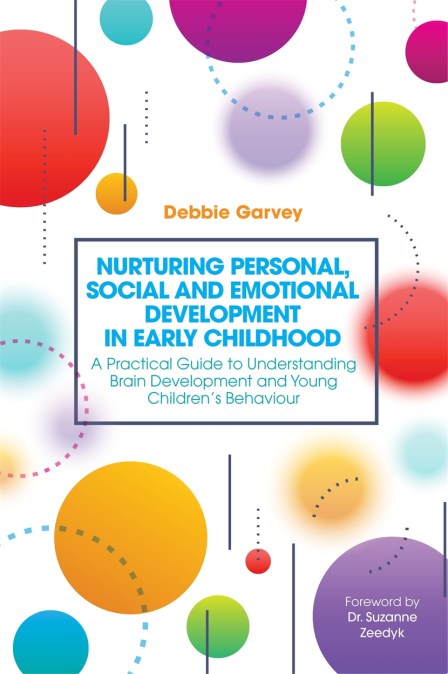This direct guide supports practitioners in nurturing personal, social and emotional development (PSED) in young children by demystifying brain development research.
Condensing a wealth of recent research and theory around PSED into practical guidance, it gives professionals the knowledge and understanding they need to critically evaluate their own practice and find the best course of action to support PSED in young children. From the perspective of neuroscience, it explores what can help or hinder development, considers why some children bite and why toddlers have tantrums, and questions how well-intentioned actions, such as reward systems or putting new foods on a plate for children to ‘just try’, may be misguided.
Condensing a wealth of recent research and theory around PSED into practical guidance, it gives professionals the knowledge and understanding they need to critically evaluate their own practice and find the best course of action to support PSED in young children. From the perspective of neuroscience, it explores what can help or hinder development, considers why some children bite and why toddlers have tantrums, and questions how well-intentioned actions, such as reward systems or putting new foods on a plate for children to ‘just try’, may be misguided.
Newsletter Signup
By clicking ‘Sign Up,’ I acknowledge that I have read and agree to Hachette Book Group’s Privacy Policy and Terms of Use
Reviews
In this remarkable book, Debbie Garvey has brilliantly analysed both the reasons and the techniques for nurturing PSED. From theory and neuroscience to lifelong practice via well meaning, wellbeing and the importance of listening, Debbie explains it all in a thoroughly engaging, affable style. Most importantly, she inspires genuine, and sometimes challenging, self-reflection on practice, using some novel, intriguing and effective methods.
In this stimulating and provocative book Debbie Garvey has provided inspiring and practical narratives, underpinned by neuroscientific evidence and a clear values set, which creates a reflective and action focused agenda for all those who work with young children. I believe anyone who reads this book will be inspired and motivated to challenge and extend their thinking and professional practice, adopting the critical and nurturing stance which lies at the heart of quality services for children and families.
This book is designed to challenge thinking and aid reflective practice, to consider whether current practices are fit-for-purpose, and whether you are fully supporting young children. This is accomplished through debate on theory, case studies and numerous examples of best practice.
The final chapter brings everything together by looking at how the theory of the preceding chapters can be turned into lifelong practice. This is an excellent book that will both challenge and inspire you.
